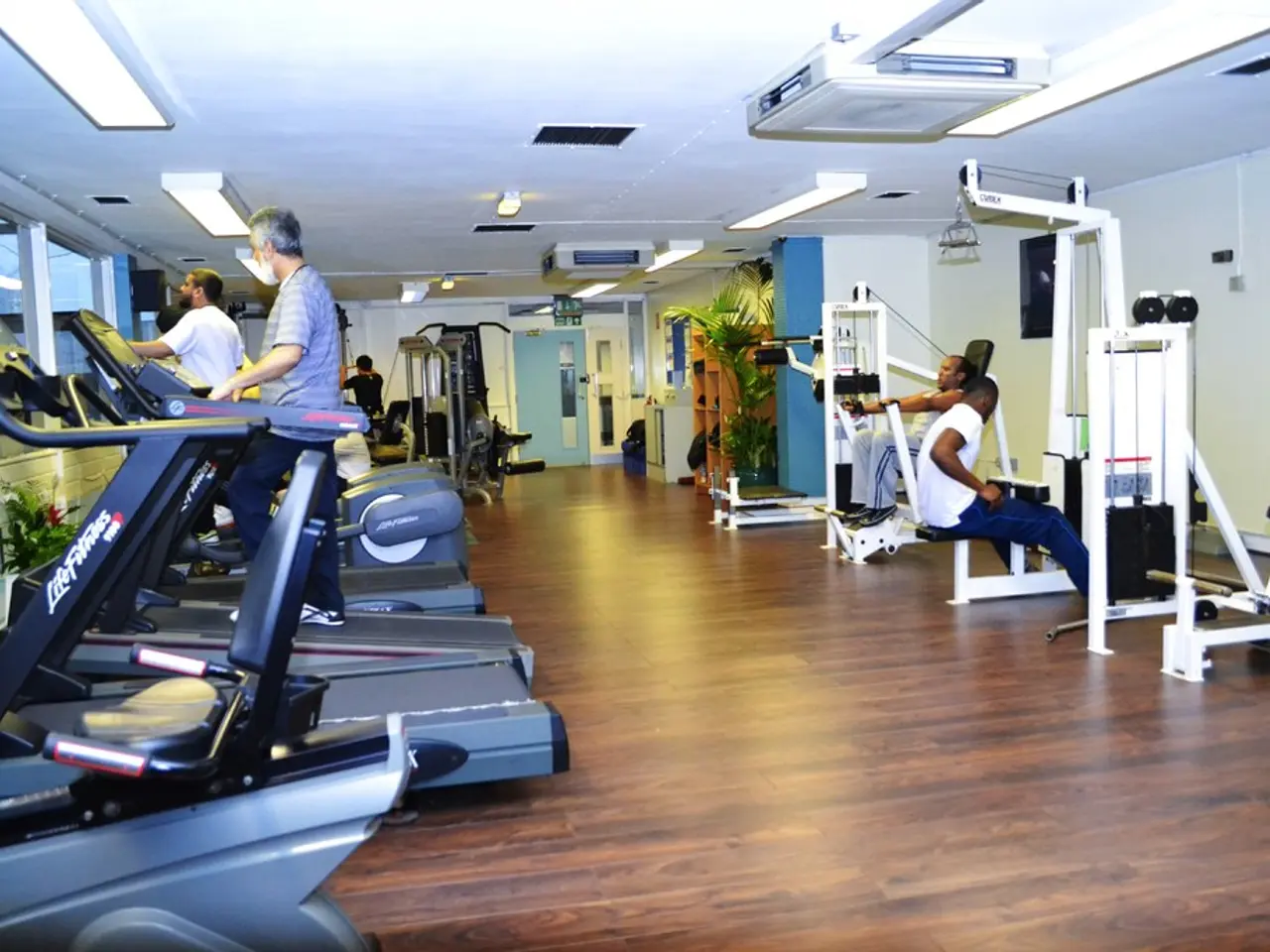Muscle Memory Explained: Understanding How Your Body Recalls Exercise Routines and Strategies for Maximizing Its Benefits
Muscle memory, a fascinating phenomenon in the realm of fitness, is the body's ability to "remember" certain movements, patterns, and physical abilities after they've been learned and practiced. This concept plays a significant role in strength training and muscle growth.
When you take a break from working out, don't worry about losing all your hard-earned strength immediately. The neural pathways and muscle nuclei remain intact, allowing for a faster regain of coordination and strength when resuming exercise. However, it's important to remember that continued growth requires new exercises, higher weights, and more demanding workouts.
The science behind muscle memory involves both neurological and muscular adaptations. Neurological adaptations make movements more efficient and automatic, while muscular adaptations occur through muscle growth, or hypertrophy. This process involves small tears in muscle fibres repairing and rebuilding stronger, leading to increased strength.
To optimize these adaptations during workouts, consistency, progressive overload, compound exercises, proper nutrition, and recovery are crucial. Consistency helps maintain the neural pathways established through muscle memory, while progressive overload ensures the body continues to adapt, preventing plateaus. Compound exercises, which target multiple muscle groups, provide a more efficient workout.
Proper nutrition plays a vital role in fueling workouts, reducing inflammation, and speeding up muscle recovery. Healthy fats, complex carbohydrates, and micronutrients are essential for this process. Protein, in particular, is crucial for muscle repair and growth, so ensuring enough high-quality protein sources is essential for recovery and gains.
Active recovery techniques like stretching, foam rolling, yoga, and light cardio can help alleviate soreness and support muscle healing. These methods should be part of your routine to ensure optimal results.
Starting slow and staying consistent is key to leveraging muscle memory. Gradually increasing workout intensity helps the body continue to adapt, while maintaining proper technique ensures safe and effective progress. With patience and dedication, you can achieve long-term fitness gains, even if breaks from training occur throughout life.
In conclusion, understanding muscle memory can help maximize progress in fitness by allowing for faster recovery and more efficient growth. By focusing on compound movements, proper technique, and smart recovery, you can harness the power of muscle memory to reach your fitness goals.
Read also:
- Overweight women undergoing IVF have a 47% higher chance of conceiving naturally post-weight loss
- Bonsai Trees from Evergreen Species: Exploring Growth Characteristics & Distinct Qualities
- What temperatures may make walking your canine companion uncomfortable?
- Title: Information About Beovu: Potency, Form, Usage, and Additional Details






